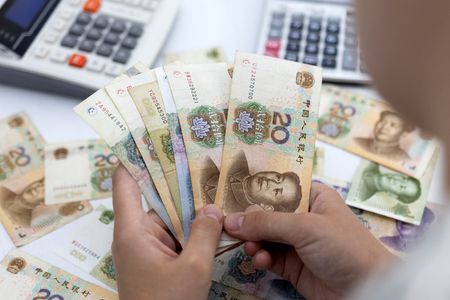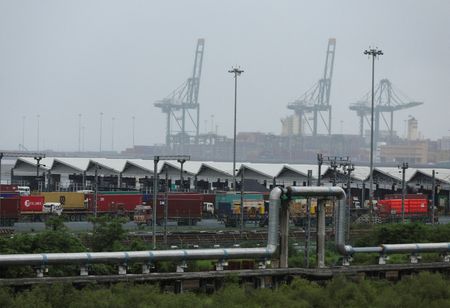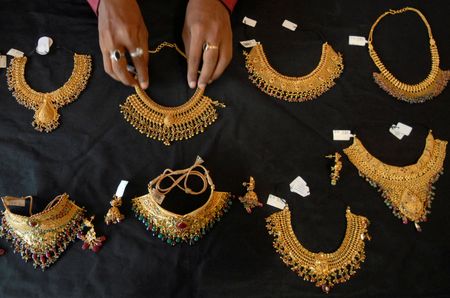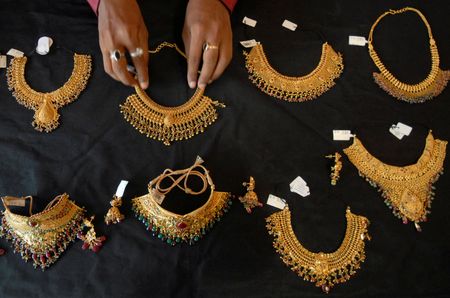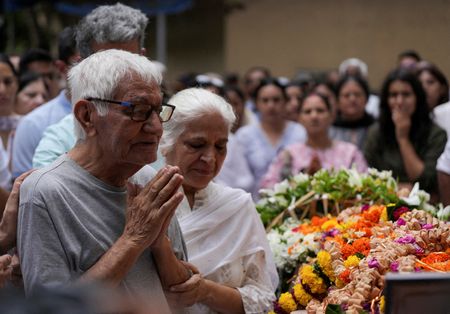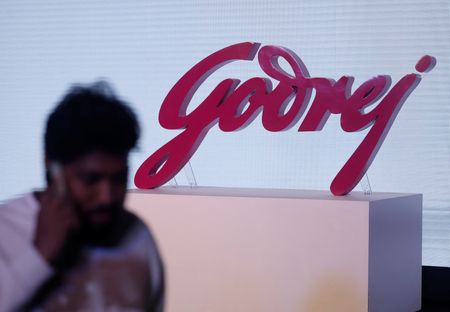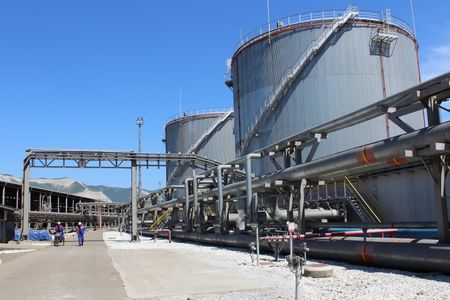By Nidhi Verma and Florence Tan
NEW DELHI/SINGAPORE (Reuters) -Traders offering Russian oil have begun asking Indian state refiners to pay in Chinese yuan, taking recent signs of improving relations between New Delhi and Beijing as a chance to simplify deals with Indian buyers, trade sources said.
India’s top refiner, state-controlled Indian Oil Corp, recently made payments in Chinese currency for two to three cargoes of Russian oil, people familiar with Indian companies’ Russian oil purchases said.
Indian Oil did not immediately respond to Reuters’ request for comment.
Western sanctions imposed on Russia after its 2022 invasion of Ukraine have accelerated usage of alternative currencies, including the yuan and the UAE dirham to settle oil trades, which have long been dominated by the dollar.
In 2023, Indian state refiners made some payments for Russian oil in yuan, but they stopped due to displeasure from the Indian government during a period of heightened tensions with Beijing, though private refiners continued to use the Chinese currency.
Now, traders, which until now had to convert payments in dirhams or dollars into yuans – since only those can be directly exchanged into roubles needed to pay the producers – are seeking to remove one costly step from the process, one trader said.
Sources also said that traders were pricing Russian oil in dollars to ensure adherence to the European Union’s price cap and seeking equivalent yuan payment.
India became the top importer of discounted Russian seaborne oil, since Western nations suspended imports from Moscow due to the sanctions. Payments in yuan will expand the availability of Russian oil for Indian state refiners, given some traders would not accept other currencies, the sources said.
India and China recently resumed direct flights after a gap of more than five years. Indian Prime Minister Narendra Modi visited China last month for the first time in seven years to attend a meeting of the Shanghai Cooperation Organisation regional security bloc.
(Reporting by Nidhi VermaEditing by Tony Munroe and Tomasz Janowski)

